For a video of my lecture, see below:
I had the great privilege of speaking at an Art/Music/Film/Lecture festival called Atlantis: Or Huberhäusl and its Potential in the beautiful city of Munich, Germany. For more information on the festival, visit: http://atlantisoder.wordpress.com/ For a video of my lecture, see below:
0 Comments
As part of my work at the Shedhalle Tübingen Artists and Researchers in Residence program, I gave a lecture concerning the topics of my current research. It was a packed and very small room, but a nice atmosphere. One audience member told me that it felt like being in a "homemade spaceship."
Also as part of the event, I will be continuing to work on a visual component that consists of a large wall-sized flowchart describing the connections and relations that I am uncovering between various systems and concepts related to extraterrestrial life, pre-human civilizations, neurology, UFOs, and more. The final results will be presented to the public here in Tübingen on Saturday, June 22nd. I am currently in the small university town of Tübingen, Germany, taking part in a Research/Fine Art residency. Some of the creatives involved were interviewed by a local independent radio station. Here is a link to the interviews; if you scroll down you should be able to listen to mine.
This Wednesday I will be giving a lecture at the work/research space, and there will be further collaborations between artists and researchers as the residency continues. See Appearances for more information, and check back for more updates. May 11th was the date of UFOCON 13, the first of a hopefully annual convention in Baltimore, Maryland. UFOCON was organized by Antonio Paris of Aerial Phenomena, who leads some very interesting archaeological digs at UFO crash sites. He spoke about a recent expedition in New Mexico where he found the wreckage of an old World War II era airplane. I had a setup with a board, and gave away copies of my essay regarding Fermi's Paradox, the Zoo Hypothesis, and other topics related to Extraterrestrial Intelligence and its possible presence here on earth. I also pose some issues that I have with the current discussion surrounding UFOs. If you'd like a copy of the booklet, visit my Shop page and look for "Enrico Goes to the Zoo: A Breakdown of Humanity's Greatest Paradox." There were about 150 people at the conference and a variety of speakers. Highlights included Bill Murphy of TV's Fact or Faked who talked about UFO videos and more interestingly the "Torsion" effect and its possible technological ramifications. Torsion is considered by some to be the "5th force" of nature (along with gravity, electromagnetism, and strong and weak nuclear forces). Murphy related this concept to the reversing of a Foucault pendulum and use by Germany in the so-called "Nazi Bell" flying saucers.
The other highlight talk was by John Alexander, a former army colonel who was profiled by Jon Ronson in The Men Who Stare at Goats and the center of many conspiracy theories himself. I think he comes off as a government apologist in a lot of circles because of his argument that the government is not hiding anything concerning UFOs. It is a controversial claim in the UFOlogy community to say the least. Special Thanks to Ignite Baltimore for an inspirational eventing and everyone who attended the event. Here's the video of my presentation and I encourage you to check out the other talks. Last month, a poll by Public Policy Polling sought to measure American's attitudes towards certain conspiratorial topics and some other, tentatively related, issues. The poll can be found here: http://www.publicpolicypolling.com/main/2013/04/conspiracy-theory-poll-results-.html Some of the answers were unsurprising. For example, 51% of those polled believed that Lee Harvey Oswald was acting in some sort of conspiracy. Also unsurprising that only 4 percent said they believed that Reptilians are active agents in society (but as a friend pointed out, 4% of the population is still 14 million). Some questions are more troubling. For example, for the question "Do you believe aliens exist, or not?", a full 47% responded with an absolute no, while 29% said yes. I can understand a "not sure" answer on this one, but a hard "no" is just plain anthropocentrism. What could be more selfish and small-minded than being absolutely sure that we are the only intelligent beings in the universe, and that earth is the only home of life? Of course, it's possible that the question itself is flawed. The term "aliens" already alludes to little green men abducting hillbillies, not bacteria on Europa or civilizations in Draco. I think "Do you believe that life exists outside of Earth?" is much fairer.  Even more disturbing is that, according to the poll, 26% of Americans think that President Obama is the anti-Christ. Besides giving foreign press a field-day for article titles, this statistic completely baffles this American. Either the poll sample was extremely flawed or a disproportionate amount of Revelationists answer any polling service that calls them (doesn't phone polling already have an intrinsic bias?). Or--and I hate to think this--I am really living in a country where 1/4 of the population believes that we are living in the Biblical End-Times.
Let's get one thing straight: I'm willing to tolerate an extremely wide range of beliefs. Every day I read what many people would consider utter nonsense, and I'm willing to agree that there's a lot of nonsense out there. But for some reason, there's some nonsense that's been around for a very, very long time, and so I suppose this is what gives it credence. Because regardless of how you feel about the president's decisions, I really don't see how the idea that America has elected Satan himself and that the world will soon come to an end can be that much more popular than the contention that extraterrestrials are involved in our world affairs. In The Gods of Eden, William Bramley argues that the vast majority of strife and struggle in human history is the result of the workings of the "Brotherhood", the secret society behind the Order of Assassins, Freemasonry, and many of the world's religions. This Brotherhood is itself a pawn of the true rulers of Earth, a group of extraterrestrials which have been reported inaccurately throughout history as gods, angels, or demons. Bramley calls these false deities Custodians. Let's start with my negative issues with Bramley's admittedly impressive work. First, there are some factual errors that could probably simply be fixed with some simple editing. I'm not a historian by any means but I do know that the Ursa constellations are not the Big and Little Dipper (ch. 9) and that Socrates was not publishing much new work in the 5th century A.D. (ch. 14). It's little hiccups like these that can hurt an author's authority. Furthermore, Bramley relies heavily upon especially ancient texts for much of his defense of Custodian interference on Earth. My issue with using evidence from archaic sources is that many times these texts are incomplete, without context, and highly vague. Bramley turns, like many "Ancient Aliens" scholars, to the work of author Zecharia Sitchin, known as much for his interesting ideas as for his dubious scholarship. The farther back in history one turns (Sumeria being the zenith of the unknowable past), the easier it is to interpret things in whatever particular light one wants. Bramley's instances of direct Custodian contact become less and less abundant as he moves from ancient to modern history (the major exceptions being Joseph Smith's claimed experiences and UFO abductees). Finally, Bramley veers a bit too spiritual at times for my taste, although I will say that he is at least clear on his stance and makes sure to distance himself from "pop" New-Agers and their "space brothers". The Gods of Eden, despite some flaws, is a powerful and impressive book, absolutely packed with historical examples of Machiavellian manipulations by secret societies. Bramley's scholarship in this area is spot on, and indeed his historical evidence is so thorough that the midsection of the book is slow-going for anyone not extremely interested in the minute details of the Brotherhood's deep roots. But the author rewards the patient reader with a scathing indictment of the inflatable currency banking system, and the role those institutions played throughout the deeply conflicting centuries leading to the present financial crisis, which is very intriguing to think about in light of Bramley's assertions about who set up some of the systems of power in our world. Human beings appear to be a slave race languishing on an isolated planet in a small galaxy... To keep control over its possession and to maintain Earth as something of a prison, that other civilization has bred never-ending conflict between human beings, has promoted human spiritual decay, and has erected conditions of unremitting physical hardship. - Bramley, p.34 Bramley's prose is hard-hitting and highly readable. He has been careful to cite all of his sources with extensive endnotes for further research. The Gods of Eden is both scholarly and thought-provoking, and essential for someone wanting to learn about the history of secret societies and their extraterrestrial connections.
I am honored to announce that I've been invited to speak at Ignite Baltimore, an annual event at which various speakers have 5 minutes and 20 powerpoint slides to present on a topic of their choice. This year's session will be held at the Brown Center of the Maryland Institute College of Art on March 28th. Within about four days, tickets sold out, but there is a waiting list.
Now my challenge will be to craft a five minute talk that will coherently introduce the audience to the ideas that are still churning in my own head! This will definitely be a brief overview, but I'm hoping that I can start a conversation among the ~500 people that will be in attendance. Recently I watched a debate between the creators of Loose Change 9/11: An American Coup and the editors of the Popular Mechanics book Debunking 9/11 Myths: Why Conspiracies Theories Can't Stand Up to the Facts. Without even touching upon the actual points, evidence, and arguments that either side presented, I think the performance of Loose Change filmmakers Dylan Avery and Jason Bermas functions as a textbook example of how to make a fool out of yourself in front of an audience--an audience that it is the job of media-makers to engage with intelligently. People labeled "conspiracy theorists" are often portrayed as unstable, unreasonable, and overly argumentative, and theorists themselves often confirm these stereotypes. So, for the good of argumentation everywhere, let's go over some simple ground rules that would be good for anyone trying to argue a point, whether to a friend or to the nation. As with a job interview, when you are talking to someone, they WILL judge you on how you present yourself and it WILL color the way that they receive the information you are giving. The boys from Loose Change at least wore shirts with buttons, but from the very beginning, the suited Popular Mechanics editors had the upper hand. This is not about "selling out" and looking like a "suit", this is about looking like someone who knows what they're talking about. There is a reason doctors, lawyers, and other people who handle important things wear a tie and jacket at least. Look back at images of the great thinkers, men and women, of the last century, and chances are, they are wearing suits. And this isn't an issue of wealth. Head to your local Goodwill and spend $10. You'll be doing yourself a favor and giving jobs to people who otherwise wouldn't have them. Always avoid tracksuits (sorry Icke). If you are debating someone with a different viewpoint--I don't care how laughable you find their thesis--do not snicker. Do not name-call. Do not attack them personally. If your viewpoint is unpopular, plenty of people probably want to laugh at you. If they have good manners, they won't. Even if your opponent starts to get ugly, stay cool and stick to your argument. You'll likely come out on top if they become childish and you hold it together and present the facts. Take note of some of the basic no-no's of argumentation, also known as Rhetorical Fallacies: 1. Ad Hominem - Attacking the speaker, not what's being said. Bad people can have good ideas (and vice versa). 2. Strawman - Setting up a dumbed-down version of your opponents argument (constructing a strawman) in order to knock it down easily. Strike the word "sheeple" from your vocabulary. It serves no other purpose than to make the user feel superior to those around him, and this is not the point of researching, investigating, and communicating. The point is to bring everyone into a conversation as equals, and to free ourselves as well as our brothers and sisters from the bonds of oppression.
People do not listen to a speaker who insults them. When an individual is verbally deprecated, they will automatically block out any information that comes from the attacker. Attacking people with different views is no way to succeed against evil in this world. There are no answers now, and only civil dialogue and discussion will lead to usable answers. Belittling the majority of the population is a tactic used by the Powers-That-Be already. Beware those who belittle others, because they often dream of holding power over others. As an Oklahoman by birth, the events of April 19, 1995 are very close to my heart. The story goes that Timothy McVeigh, acting alone, set off an improvised truckload of explosive and brought down the Murrah Federal Building, killing over 160 people. A variety of theories regarding these events have been created over the years as new evidence has presented itself. A new film which I had the privilege to view over the weekend presents some of these. 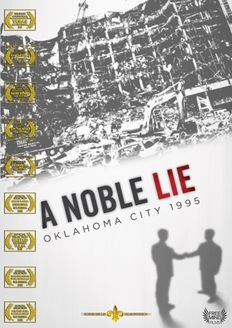 A Noble Lie: Oklahoma City 1995 investigates many of the holes in the official narrative of the OKC bombing through interviews with police officers, victims, experts, and even politicians. Many of these people step forward with stories and experiences which would seem to suggest that Timothy McVeigh had accomplices which were never brought to justice. Some evidence even suggests that he was working for the government in a false-flag operation. Events such as Ruby Ridge and the siege at Waco had added fuel to the fire burning between the government and nationwide militia/constitutionalist forces. It is logical that the government would want to calm this dissension by casting "right-wingers" in a bad light.
The only issue I immediately took from the film was that in certain segments, the actual filmmakers were interviewed with the same gravity as the experts and witnesses that the filmmakers were supposed to be learning from. I'm sure that the reasons for this were to build narrative where there was no convenient expert witness, but interviewing the filmmakers smacks of an author citing his own prior work to defend his hypothesis. All in all, A Noble Lie is a must-see if you want to learn more about the OKC bombing, the mysterious murders which followed it, the government sponsored tests which blow the "lone truck bomb" theory out of the water, and the government which continues to cover "someone's" tracks to this day. |
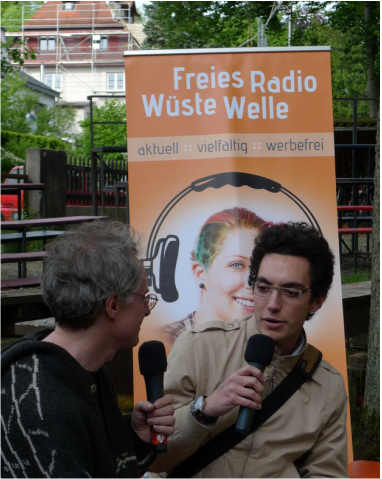
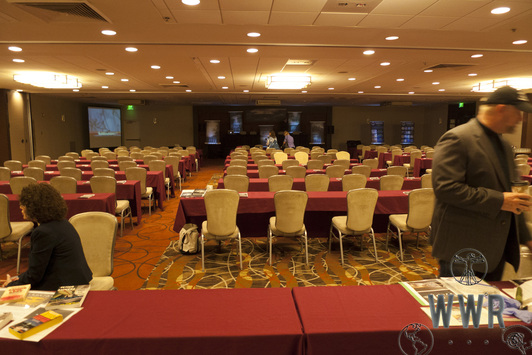
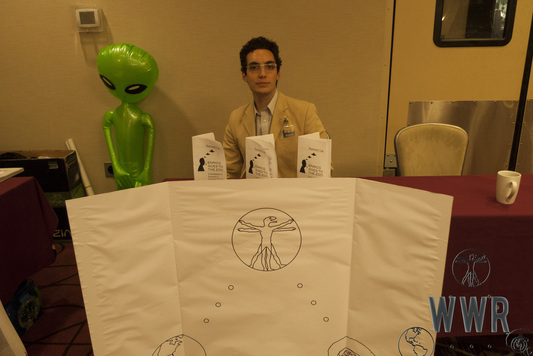
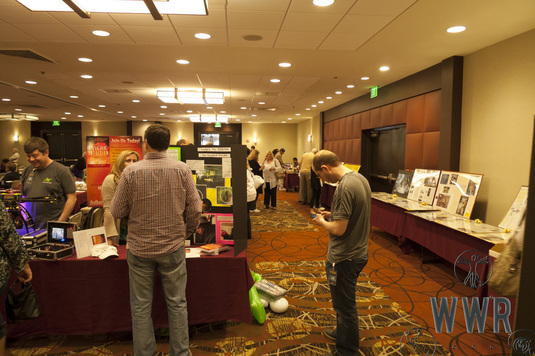
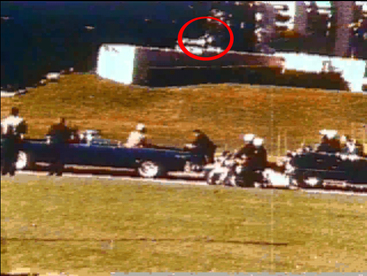
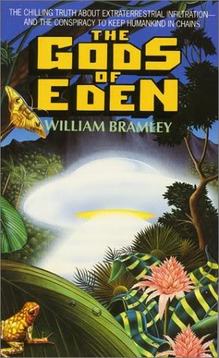
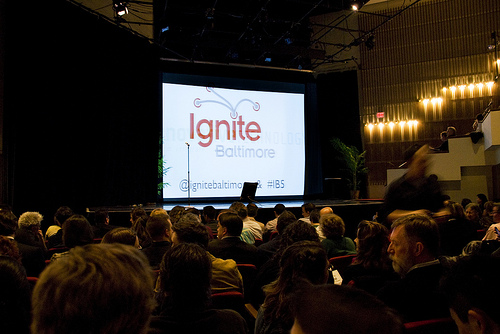





 RSS Feed
RSS Feed